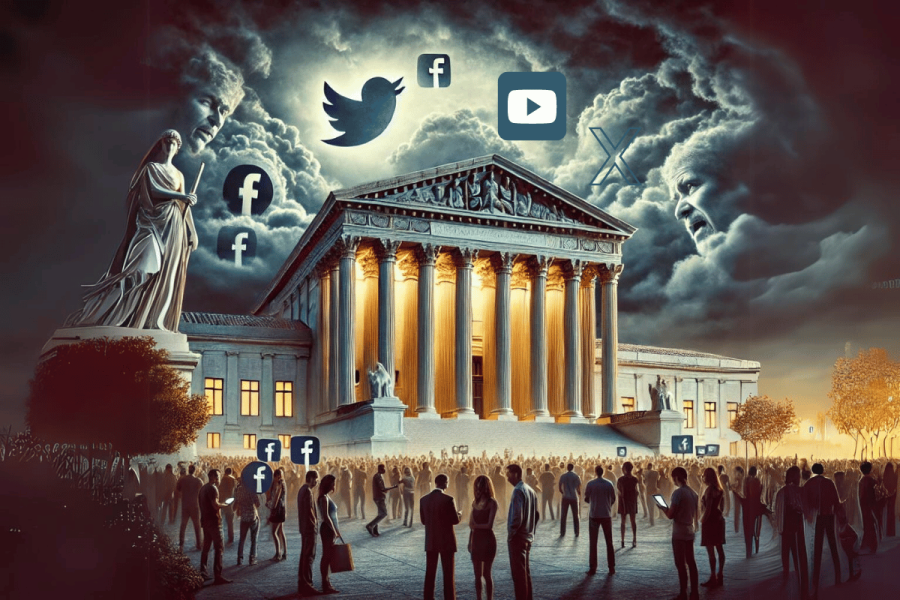
The U.S. Supreme Court has referred two state laws designed to regulate social media platforms back to lower courts on Monday (July 1), stating that the First Amendment shields these companies from government meddling in their content feeds. However, the court did not rule out the potential for some elements of these laws to be upheld.
The lawsuit—Moody v. NetChoice and NetChoice v. Paxton—originates from regulations in Texas and Florida intended to force social media platforms to host a wide range of user opinions. These laws were enacted after several platforms banned former President Donald Trump for breaching their rules against promoting violence, following the events of January 6, 2021.
Justice Elena Kagan wrote in her summation that “work must be done consistent with the First
Amendment, which does not go on leave when social media are involved.”
All the justices agreed with the decision, though there were multiple concurring opinions. Justice Kagan authored the majority opinion, which was joined by Chief Justice John Roberts and Justices Sonia Sotomayor, Brett Kavanaugh, and Amy Coney Barrett. Justice Ketanji Brown Jackson concurred with parts of the majority opinion. Justices Clarence Thomas and Samuel Alito each wrote concurring opinions, with both Thomas and Neil Gorsuch joining Alito’s opinion.
Why did social media platforms file a free speech lawsuit?
The main focus of the arguments in these cases was on how the laws affected only the curated feeds of major social media platforms, like Facebook’s News Feed, implying that the platforms were challenging the laws because they restricted their control over content curation.
Tech advocacy organizations NetChoice and the Computer and Communications Industry Association filed lawsuits, arguing that the laws infringe on the platforms’ constitutional rights to make editorial decisions regarding the content they permit or prohibit.
However, Justice Kagan wrote: “[The] question in such a case is whether a law’s unconstitutional applications are substantial compared to its constitutional ones. To make that judgment, a court must determine a law’s full set of applications, evaluate which are constitutional and which are not, and compare the one to the other. Neither court performed that necessary inquiry.”
The justices set aside previous rulings by the 11th and 5th Circuit appellate courts and provided guidelines for lower courts to evaluate the constitutionality of these laws. The legislation emerged following complaints from conservative politicians in both states, who accused major tech companies of bias against conservative perspectives. Different rulings by appellate courts in each state on the legality of the statutes led to the Supreme Court being tasked with the final decision on social media regulation.
“Today, we vacate both decisions for reasons independent of the First Amendment merits,” Justice Elena Kagan stated in the majority opinion.
Knight Institute comments on Supreme Court ruling In #NetChoice cases involving Florida and Texas social media laws. See our statement on today’s decision from @JameelJaffer below. https://t.co/sOGyBMCS7s pic.twitter.com/pHbXxaxtRt
— Knight First Amendment Institute (@knightcolumbia) July 1, 2024
Kagan’s majority opinion in #Netchoice is complex, but it is also refreshingly clear about the heart of the #FirstAmendment issue: “a State may not interfere with private actors’ speech to advance its own vision of ideological balance.” https://t.co/hk8K4eI9IY
— Dr. Mary Anne Franks (@ma_franks) July 1, 2024
The Knight First Amendment Institute at Columbia University said the ruling was “careful and considered”. George Washington University law professor Dr. Mary Anne Franks added that it was “refreshingly clear”.
Featured image: Canva

